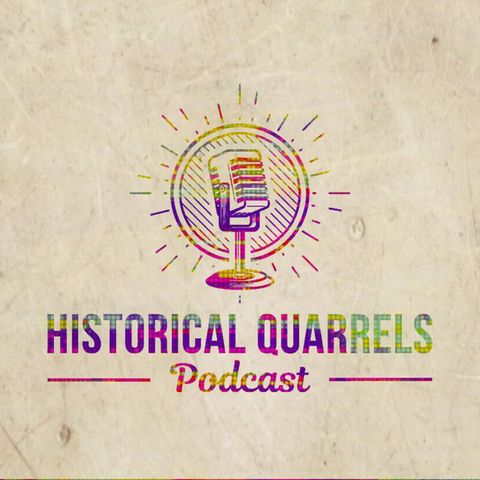Empress Irene

Scarica e ascolta ovunque
Scarica i tuoi episodi preferiti e goditi l'ascolto, ovunque tu sia! Iscriviti o accedi ora per ascoltare offline.
Descrizione
On the pivotal day of September 24, 787 AD, Empress Irene of the Byzantine Empire sat in the grand hall of Hagia Sophia in Nicaea. The air was filled with...
mostra di piùJust the day before, Irene had taken a moment to consult with Tarasios, the Patriarch of Constantinople, who had been a layman until she appointed him. The two were ideological allies in a Byzantine court that had seen decades of religious discord. For Tarasios, and indeed for Irene, the Council represented a turning point, a chance to put to rest a religious controversy that had sown division and discord. The Council would determine whether icons, a focal point in the daily life and worship of many Christians, would be considered sacred or heretical.
As each point was debated, and religious texts and traditions examined, it was clear that the Council was not merely an academic exercise. It was a spiritual reckoning, affecting not just the empire but the broader world of Christendom. By the end of the Council, the veneration of icons was affirmed, and those in opposition were declared heretics. The decision would shape Orthodox Christianity and resonate through the centuries, even attracting the endorsement of Pope Hadrian I.
In that intricate dance of theology and power, the Byzantine Empire—and Christian orthodoxy itself—was indelibly altered. Was Irene a devout believer, acting on a deeply-held spiritual conviction, or was she a master of statecraft, using religion to consolidate her rule? Were the attendees of the Council faithful theologians or political agents?
Join us today on Historical Quarrels as we explore these questions and many more. As stated earlier, Irene was a complex figure whose reign encompassed moments of both religious fervor and political intrigue. Drawing on the wisdom of Socrates, who asserted that "An unexamined life is not worth living," let us delve into the enigmatic world of Empress Irene, the Second Council of Nicaea, and a decision that would leave an indelible mark on both the Eastern Orthodox and Roman Catholic Churches for centuries to come.
Remember if you have any suggestions or just want to talk please email us at:
Historicalquarrels@gmail.com
Or you can find us through our socials:
Historical Quarrels Podcast (@historicalquarrels) | Instagram
(1) Historical Quarrels (@HQuarrels) / Twitter
Please remember to be leave a review if you liked or didnt like the episode. Let me know your thoughts and feelings on everthing as well! Love ya!
Informazioni
| Autore | Tyler Eckhardt |
| Organizzazione | Tyler Eckhardt |
| Sito | historicalquarrels.podcastpage.io |
| Tag |
Copyright 2024 - Spreaker Inc. an iHeartMedia Company
